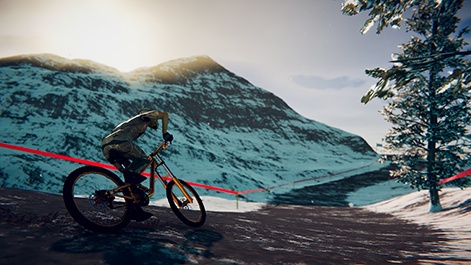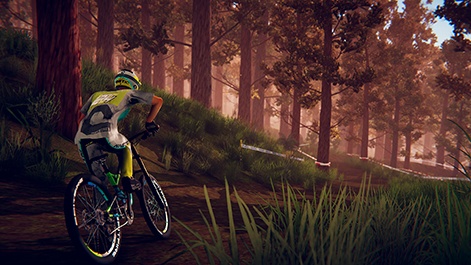For the last year years, Mike Rose has been pretty active in the indie publishing scene.
After spending almost a decade in the games media, most notably at GamaSutra, he moved to Punch Club company TinyBuild in 2014 before a ten-month stint at Ripstone.
But now he’s striking out on his own with a new publisher for indie titles called No More Robots, with funding assistance coming from IGF Chair Matt Carless and games lawyer Jas Purewal.
The indie publishing sector is incredibly busy, something that Rose is more than aware of when asked what sets his venture apart from the crowd.
“It's become very busy. And besides the indie publisher thing, just selling PC games right now is atrocious,” he says.
“As soon as I decided I wanted to do this, I have been data mining the shit out of Steam. There's a lot of figures online for sales, like SteamSpy, but a lot of it is not useful. It doesn't give you much of an idea of how well games are doing.
"When I was at Gamasutra, I did a lot of that stuff – one about Twitch, about YouTubers, one about press and another about how games were actually selling. So I have been doing a lot of this, and I have basically got enough data now that I've actually worked out what kind of games sell and why I think games aren't selling on Steam.
“Part of the reason people have always come to me with this stuff is that I usually try and get some data to try and back up what I am saying as well. I'm hoping in the next few months to start putting some of this down for people to see because I have never been someone who likes to this stuff. One of the first things I did at TinyBuild was data mine Twitch streamers and contacts and stuff and just threw of that out. It's just not my thing to keep that to myself. That is part of what makes me different.
“The other part is a little more difficult to explain, but it's basically that I am fucking enthusiastic about everything I do. It travels so far. One of the developers I am working with now, when I was talking to them about their game, it was in a certain state. Now by the point I have been talking to them constantly on a daily basis it's at this point where we are so excited about it. That's probably what is missing from when they work with other publishers.”

No More Robots’ first project is Descenders from Dutch studio RageSquid. You may know them from 2015’s Action Henk, published by Curve Digital.
“I have known Rage Squid for a long time,” Rose explains.
“At GDC, when they were first showing Action Henk behind closed doors, I met them in the field outside GDC and just sat on the grass and played it for like two hours straight. So when they saw that I was doing this, and they showed me Descenders, there has been no back and forth about it – it's just been a case of 'let's do this'.
“Descenders is Skate but crossed with Trials. A lot of people have been looking for a new game Skate game; with this title you control direction with the left stick and with the right you can pull off tricks. It's not like Tony Hawk where you tap buttons and do some moves; it's all about those subtle touches. On top of that, there are procedurally generated levels. When you start the game you are shown a map and have to try and get from one side to the other, trying to work out how to tackle it. There are four worlds so it's almost like Spelunky.
“It scratches a few different elements there at the same time.”
There are other No More Robots productions in the works – with Rose deciding to space out announcements to give each project room to breathe. But what he’s looking for in terms of future projects isn’t entirely clear.
“I'm just after something that looks cool. I appreciate how vague that sounds,” he says.
“I just know when something is right. Since I have been doing this, the few games I have looked and have signed up have all been similar in a specific way. I did it accidentally, but basically, they are just polished to shit. They look really good. Right now, people are looking for that. The problem we have got is that small indie studios are now managing to create incredible looking stuff. Because there is so much stuff, because the mid-tier is so crowded, there is so much choice. A lot of people who might have bought a lot of the more indie looking stuff have enough choice now that they don't need to. It's terrible because I love all these games.
“There was a developer I spoke to [at Develop:Brighton] who is making a game with that kind of look. I want to look at this game because it sounds amazing. I am still looking for games that just have that this thing about them. I'm in a weird space where I have always known the kind of games I am looking for. I've never been in a position that I don't know. I see a game and just know it's the one. It's nice to know that.”

Rose also says that he is keen to not only give each project he publishes room to breathe in the release schedule, but he also wants to foster some kind of community with the developers he is working with.
“When I was at TinyBuild, we signed about six games a year. That was perfectly manageable,” he says.
“It gives each project breathing room. No titles are eating into each other's space. Churning them out just isn't good enough. They can also synergise with each other - I hate that word – but I can put in some characters from one game into another.
“Creating a community of developers is one of the core things I want to do with No More Robots. It's one of the things that just works for developers and publishers right now. I'm very much planning to cause a scene in that regard. I do a bunch of Twitch stuff already but I want to expand the scope in that regard.”
So far, so good. But what’s the plan for the first year?
“Make a shit load of money, go public, sell out. That'll be really good,” Rose laughs.
“Really, my plan for year one is to make a base for myself. No publisher has ever rolled up and been the biggest thing from the get go. There is literally no publisher who has ever done that. I am not going to manage to do that. You have to be realistic and assume in a year's time the industry is going to be even more fucked than it is now. My goal is that all the games I work with have all done really well and all the developers – above everything – are happy to have worked with me. At that point, then I guess I just start building on that.”
But for a final question we have to ask is: where does the name come from?
"The official answer I am giving is that I have found is that the experience a lot of developers have of working with publishers is they get signed up by someone then end up never talking to the team that signed them up ever again and get passed around a bit," Rose explains.
"It's a bit crappy. The point of the name was to say that they know that they are going to work with me.
"The unofficial answer is that I was trying to think of a name and I couldn't think of one. I came up with some really terrible ones. I also came to the conclusion that I needed to have my name in the company name because the whole selling point of the publisher was that they knew it would be me. I finished on Rose Core, but really still hated it. It's shit, right? I stuck with this name for about a month then went: 'It's shit though, what am I doing?'.
"Then Rachael [Gregg-Smythe, a producer at Ripstone and Mike's partner] and I were going to a BAFTA thing in Dundee. When I was a kid, I used to always think that the blue motorway signs were robots. I figured it was something from Power Rangers because it has the little arms out and the big legs. So I told Rach about this. When we were coming off the motorway in Dundee, it has just a giant one of these signs with a massive cross in it – so she just points at it and goes: 'No more robots'.
"That was it. On the spot, I knew that was the name. That's where it came from then."













